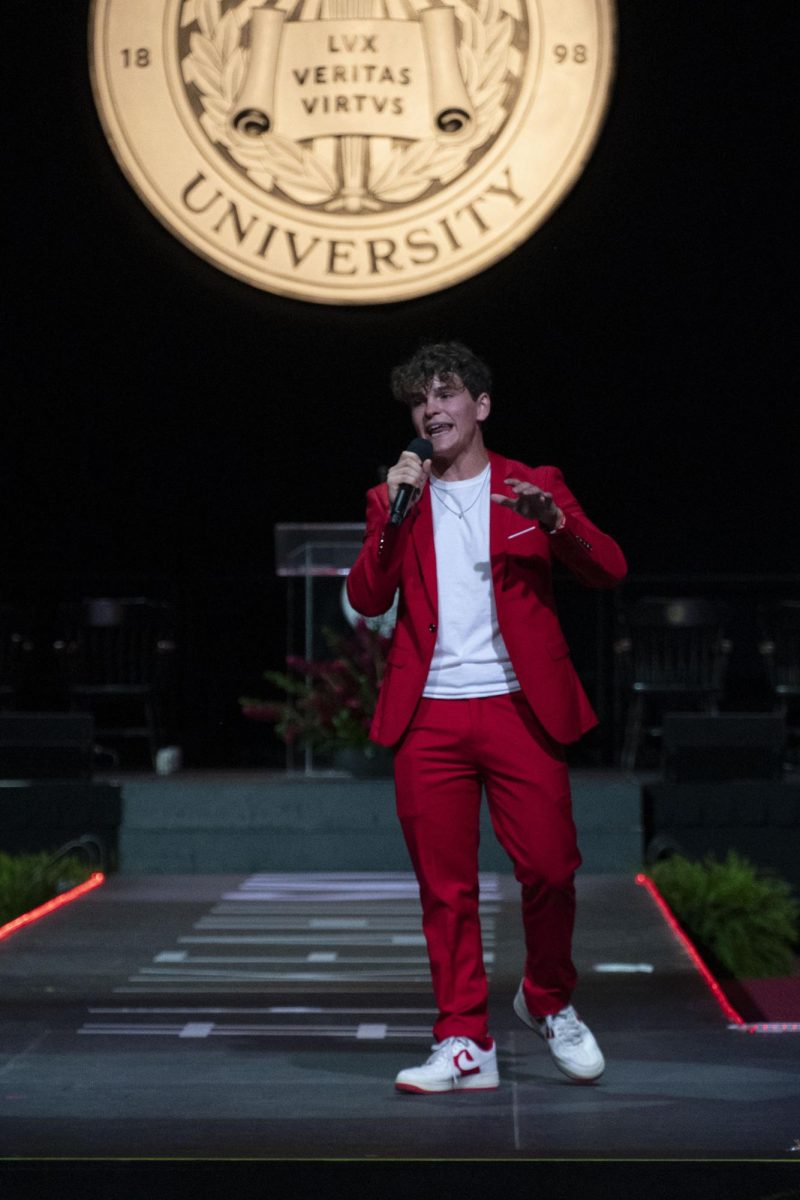 Officials stress respect on the Hill
Officials stress respect on the Hill
by Bill Shaner, News Staff
Living off campus provides a certain type of freedom on-campus living doesn’t – no resident assistants (RAs), no signing in and fewer restrictions. But it also comes with certain liabilities and responsibilities on-campus students don’t need to worry about.
University officials are urging students living off campus to be good neighbors and to respect surrounding communities, as emphasized in the new Northeastern University P.L.E.D.G.E.
Student Government Association (SGA) Vice President for Student Affairs Ashley Caron said she thinks there is a good dynamic in Mission Hill, but students should be mindful of the laws there versus those that govern students who live on campus.
“The whole rights thing, it’s just different, whether you’re on campus or off,” Caron said. “On campus you have that supervision there all the time by the university officials and RAs, but once you go off campus you kind of lose that supervision. But then you go under the supervision of Boston Police and those different types of laws.”
On campus, students face the Office of Student Conduct and Conflict Resolution (OSCCR) for code of conduct violations like under-aged drinking and possession. Off campus, there are no restrictions tighter than the under-aged drinking law, but when a party becomes too noisy, or a student does something like urinate or carry an open container of alcohol in public, they risk being fined or possibly arrested by police.
“We’ve talked to the [police] captain up on Mission Hill and the captain in the The Fenway,” Vice President of Student Affairs Ed Klotzbier said. “These men fight real crime. They are not out to arrest students, students who are arrested deserve to be arrested. And the reports we’ve seen confirm that.”
However, off-campus students still have to go through OSCCR for code of conduct violations like disruptive parties and providing alcohol to minors, according to the Northeastern Code of Student Conduct. Furthermore, cases involving off-campus students will be expedited through the judicial process under the Northeastern University P.L.E.D.G.E., implemented at the beginning of the fall 2010 semester.
Klotzbier also said it’s important to note when police break up an off-campus party, they will hold the tenants of the apartment liable for what happens.
He also said students are better off telling officers they are from Northeastern if asked.
“If you don’t show your Husky ID [when an officer asks], and then you go through the student conduct process, you can get in even more trouble,” he said. “And I think a lot of students don’t know that.”
As tenants of off-campus apartments, students are treated the same as any other tenant. Once a student signs a lease, he or she is bound for the entirety of the contract. If the contract is for a full year, the student is responsible for his or her share of rent, regardless of whether or not the student lives in the apartment for the full year, according to The Office of Off-Campus Student Services’ Guide To Student Living.
Other university officials, such as those in the Northeastern University Division of Public Safety and the Office of Off-Campus Student Services, could not be reached for comment.
As neighbors, students should try to be respectful and active in their communities, Vice President for City and Community Affairs John Tobin said.
“Say good morning, say good afternoon,” he said. “If there’s a neighborhood block party, go to it.”
Klotzbier said from his personal experience, many students have told him they enjoy meeting and becoming friendly with neighbors.
“It’s one of the reasons many students live off campus,” he said, “To live in a community, not a high rise full of other students.”
He also said the relationship between students and their neighbors can be mutually beneficial, and that many of the older residents he’s talked to enjoy having students – when respectful – in their communities.
Tobin offered a rule to follow when dealing with neighbors off-campus: “Treat your neighbors on Mission Hill and The Fenway the same way you would treat your next-door neighbors or neighbors on the street where you come from, from your home town,” he said.








